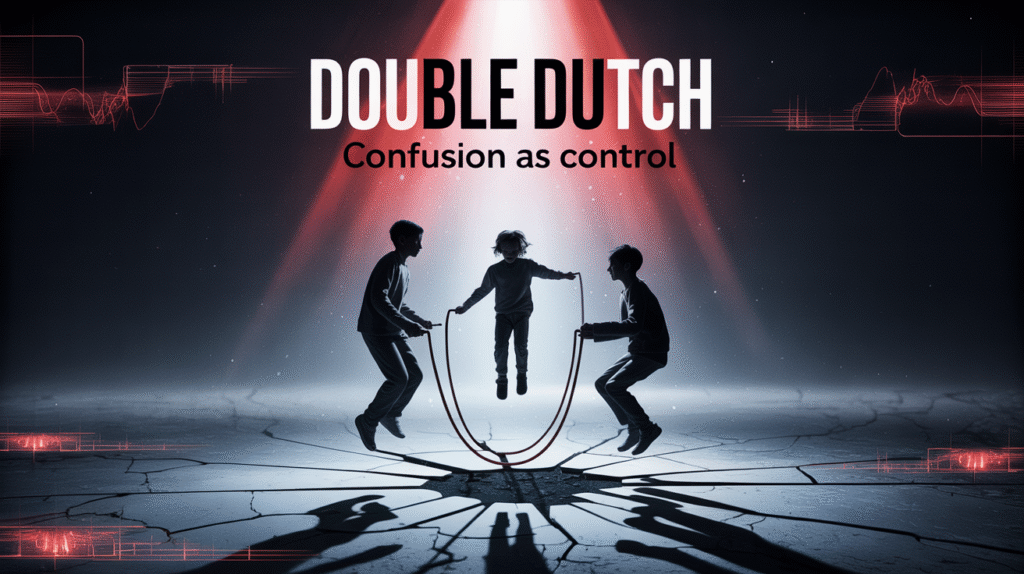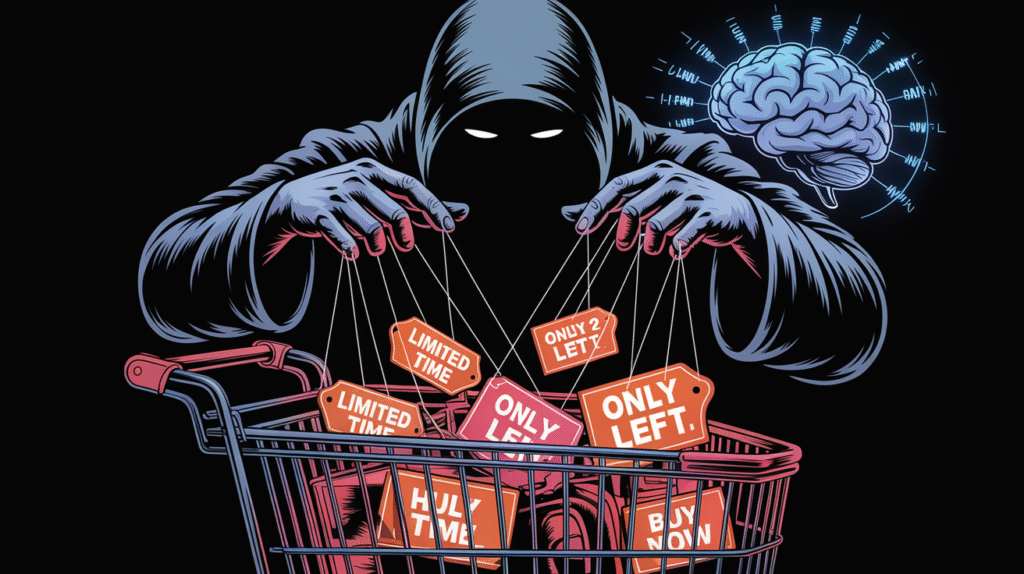🧩 Double Dutch: Confusion as a Mind Control Weapon
In the field of dark psychology, “Double Dutch” is more than a child’s rope game — it’s a metaphor for cognitive overload. This tactic is used to confuse, disorient, and gain psychological control over individuals through conflicting input, rapid changes, and pressure.
🧠 The Psychology Behind It
- Decision fatigue due to constant stimuli
- Mental disorganization and emotional confusion
- Dependence on the manipulator for clarity
🔍 Real-World Applications
- In relationships: Mixed signals create attachment loops.
- In corporations: Overlapping tasks and vague goals cause mental fog.
- In interrogations: Conflicting questions wear down resistance.
📊 Double Dutch in Marketing & Sales
Confusion techniques are also exploited in marketing:
- Rapidly changing offer deadlines confuse consumers into impulse buying.
- Complex product bundles with unclear benefits lead to overwhelmed decisions.
- Pop-up pressure tactics on e-commerce sites: “You have 10 minutes to buy!”
🧪 Research Commentary by Kartick Dutta
“Through years of studying dark psychology and mind manipulation, I’ve concluded that confusion-based influence, like the Double Dutch technique, is highly effective for disrupting clarity and increasing suggestibility. But like any tool, it must be used ethically. True influence builds trust while guiding decisions.”
— Kartick Dutta, researcher in mental health, dark psychology, and cognitive manipulation
Recognizing the “Double Dutch” technique empowers you to maintain clarity and control in conversations, decisions, and high-pressure environments.
🧠 Explore More Tools of Manipulation

